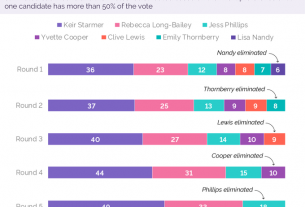The European Union (EU) is keen to offer Britain a two-year transition period after Brexit provided that the latter pump more cash into the bloc.
EU chief Brexit negotiator Michel Barnier announced on Wednesday that EU leaders would consider extending the 11-month transition phase after the UK formally left the bloc on January 31.
“Such an extension of up to one or two years can be agreed jointly by the two parties,” Barnier said.
“The European Union has always said that we remain open on this matter,” he added.
Barnier noted that any extension decision “has to be taken by the Joint Committee before July 1, and must be accompanied by an agreement on a financial contribution by the United Kingdom.”
However, UK’s chief negotiator David Frost told members of the European Parliament that Britain remains firm to not extend the transition period beyond the end of the year.
“That is the firm policy of the Government, that we will not extend the transition period and if asked we would not agree to it,” he said.
The SNP’s Westminster leader, Ian Blackford, called on UK Prime Minister Boris Johnson to accept the offer in a bid to help protect the economy during the global pandemic.
“Boris Johnson must finally put his responsibilities to jobs, living standards and the economy first, and urgently agree on the two-year extension on offer to the transition period,” he said.
“It would be madness to pile a Brexit crisis on top of the coronavirus crisis we already face – with unemployment soaring, businesses shedding jobs, and many struggling to survive,” he added.
Blackford noted that the UK only has “one month” to agree to an extension to prevent the UK economy from crashing out with a devastating bad deal or a catastrophic no-deal.
“If the Prime Minister fails to agree to an extension, he will be responsible for every job lost, every income slashed, and every business that goes under as a result of his bad Brexit deal,” Blackford said.
Meanwhile, Lib Dem leadership candidate Layla Moran urged Johnson to set his pride aside and agree to an extension.
“The transition period was designed to give us time to secure a trade deal and make preparations for it to come into effect,” she said.
“That time has already, and understandably, been decimated by the coronavirus response. This makes a dangerous no-deal Brexit more likely at the end of the year unless we extend the transition period,” she added.




